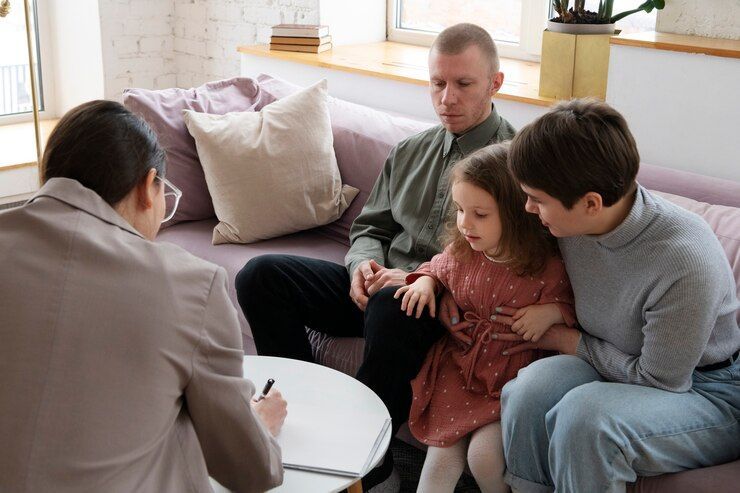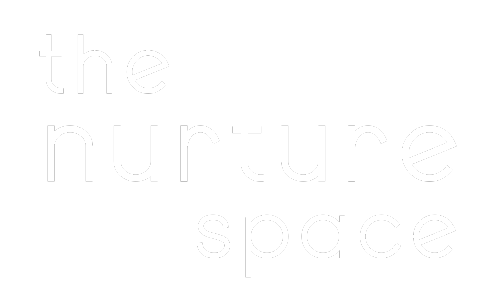Attachment - Based Family Therapy for Emotional Healing
AT
The Nurture Space, we specialise in attachment-based therapy, a transformative approach grounded in attachment theory. Understanding
attachment styles is crucial in therapy as it helps uncover the roots of
emotional and relational challenges, providing a clear
path to healing and growth.
What is Attachment-Based Therapy in Adelaide?
Attachment-based therapy is a therapeutic approach that uses principles from attachment theory to address and resolve emotional and relational difficulties. This therapy focuses on understanding and repairing the attachment bonds between individuals and their primary caregivers or significant others. Attachment theory, pioneered by John Bowlby and Mary Ainsworth, highlights how early relationships with caregivers shape our emotional and relational patterns throughout life. Attachment-based therapy aims to foster secure, healthy relationships and emotional resilience by exploring these foundational bonds
The Principles of Attachment-Based Therapy in Adelaide
Attachment-based therapy is guided by key principles:
- Attachment Theory Foundations: This theory posits that early interactions with caregivers significantly impact emotional and relational development. Secure attachments in childhood lead to healthier relationships in adulthood.
- The Role of the Therapist: Therapists act as a secure base, providing a safe and supportive environment where clients can explore and address their attachment issues.
- Repairing Attachment Bonds: Therapy focuses on identifying and correcting maladaptive attachment patterns contributing to emotional and relational difficulties.
These principles guide therapists in creating a nurturing space where clients can work through their past traumas and develop healthier attachment styles.

Therapeutic Approach and Techniques by Attachement Therapist in Adelaide

Attachment-based therapy employs various techniques and methods to facilitate healing:
Exploring Attachment History: Therapists help clients understand their early attachment experiences and how these have influenced their current relationships.
Creating a Secure Therapeutic Environment: Sessions are structured to provide safety and support, allowing clients to openly discuss their vulnerabilities and emotional challenges.
Focused Interventions: Techniques include guided discussions, role-playing, and exercises to enhance emotional responsiveness and repair attachment ruptures.
What is Attachment Therapy?
Attachment therapy at The Nurture Space addresses psychological issues stemming from early attachment disruptions, such as emotional distress and behavioural problems. Our approach focuses on understanding and modifying attachment styles that impact relationships. By exploring and resolving insecure attachment patterns from childhood, we help clients develop healthier ways of connecting with others, fostering secure and lasting bonds.
We emphasise improving family dynamics by promoting empathy, responsiveness, and emotional availability, crucial for nurturing secure relationships. Our therapist transforms dysfunctional patterns into supportive interactions through targeted interventions, enhancing emotional resilience and psychological well-being.
Addressing Attachment Issues within Family Contexts
Attachment issues are often at the core of many mental health and behavioural challenges in both children and adults. When explored through family therapy, these issues can reveal and address the root causes of distress and dysfunction. This focus is particularly crucial for addressing the effects of childhood trauma that disrupt attachment and lead to significant emotional and relational difficulties.
At The Nurture Space, Niki Gelekis employs attachment-based principles in family therapy to understand and resolve these issues. By tailoring interventions to improve
attachment security, Niki helps family members address their unique challenges, alleviate symptoms, and build healthier relationships. Her approach supports the development of positive
parent-child relationships
and fosters a more harmonious, emotionally healthy family life.

Therapist's Role in Attachment-Based Therapy in Adelaide
In attachment-based therapy, Niki Gelekis plays a crucial role by applying attachment theory to address clients' specific needs. This therapy focuses on enhancing attachment security, which improves psychological functioning and relationships. Niki provides a secure base in therapy, offering the support and safety that clients may have missed in early development. This safe environment allows clients to explore past traumas and attachment disruptions, with Niki acting as a temporary attachment figure.
Niki Gelekis goes beyond conventional counselling, engaging in individual and family therapy to facilitate healing. By using evidence-based methods, she helps clients understand and modify harmful attachment patterns, addressing issues like anxiety, depression, and eating disorders. Her work is vital for young adults and children, where early intervention can redirect developmental trajectories. In attachment based family therapy, Niki collaborates with caregivers to enhance their responsiveness, fostering secure attachment bonds and improving family dynamics.
My Approach As Your Personal Attachment Therapist
The Nurture Space, led by Niki Gelekis, brings a compassionate and expertise-driven approach to attachment-based therapy. We focus on creating a supportive environment where clients feel safe to explore their attachment issues. Our therapy is tailored to each client's unique needs, drawing on our extensive knowledge and experience to facilitate meaningful and lasting change.
Session Pricing
Initial Individual Counselling Session: $275
Follow Up Individual Counselling Session: $220
Please Note:
Sessions are not covered under Medicare's Mental Health Care Plan.
Some Private Health Cover Rebates may apply.
Ready to find out more?
The Nurture Space is here to support your journey towards improved emotional well-being and healthier relationships. Whether you want to learn more about attachment-based therapy, schedule a session, or simply have a question, we’re here to help. Book an appointment today!
Frequently Asked Questions
Is Attachment-based Therapy Effective?
Yes, attachment-based therapy is effective in addressing core issues related to early attachment experiences. By focusing on improving attachment security, it helps individuals develop healthier relationships and manage emotions more effectively, which can alleviate symptoms of anxiety, depression, and other mental health issues.
What Is The Goal Of Attachment-based Therapy?
Attachment-based therapy enhances attachment security by addressing and resolving issues rooted in early attachment experiences. This therapy aims to help individuals develop healthier relationships and emotional regulation, ultimately improving their mental and interpersonal health.
What Are The Benefits Of Attachment-based Therapy?
Attachment-based therapy offers several benefits, including:
What Should I Expect During An Attachment-based Therapy Session?
In an attachment-based therapy session, you'll explore your attachment styles and their impact on your relationships. The therapist will guide you through discussions and techniques to develop healthier connections and manage emotions. You'll work on setting and achieving personal goals to improve your attachment patterns and overall well-being.
How Long Does Attachment Therapy Take?
The duration of attachment-based therapy varies depending on individual needs and goals. Typically, therapy can last from a few months to a year or more. The length of time needed depends on the complexity of the issues being addressed and the progress made during sessions.
